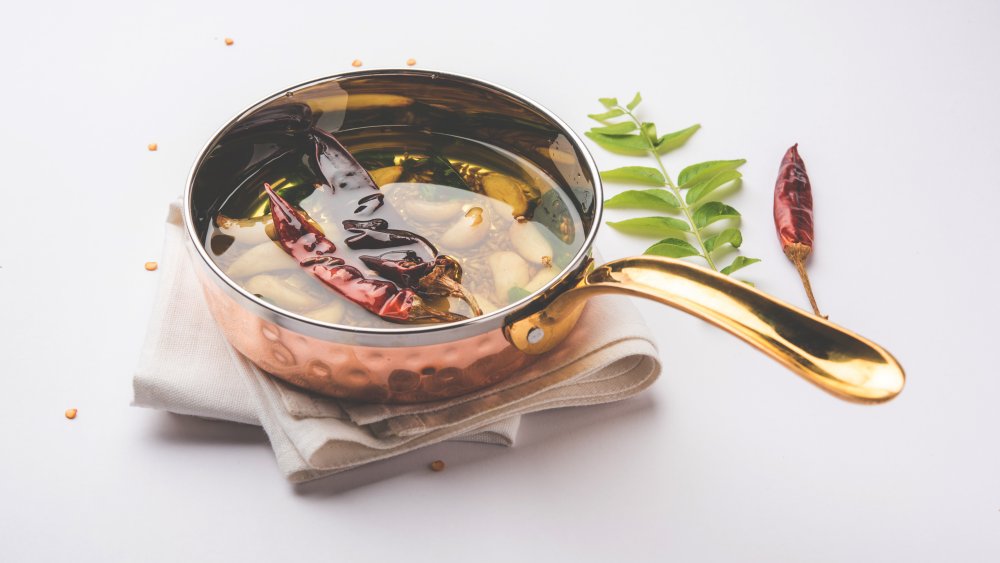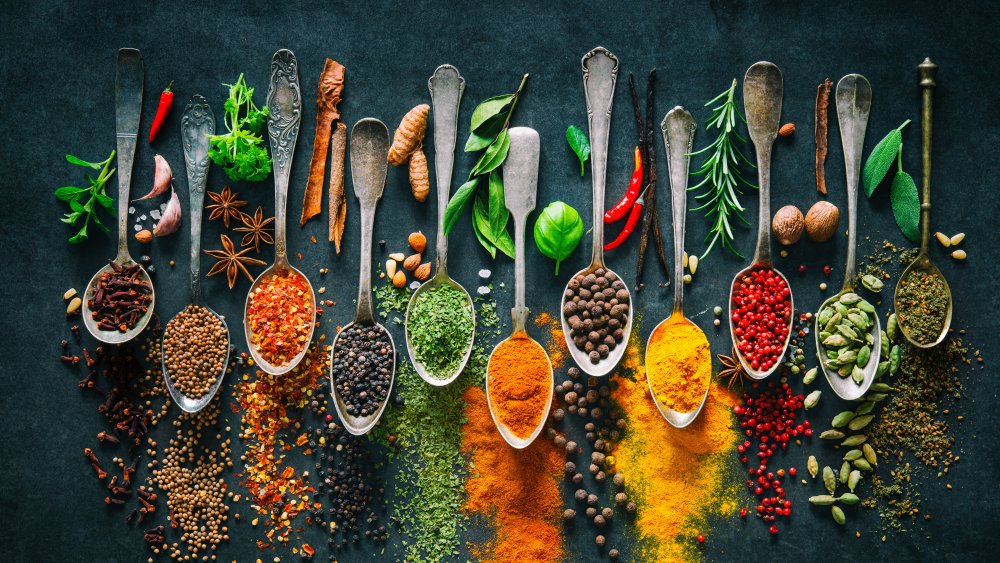The Simple Hack You Need To Get The Most Out Of Dried Spices
Contrary to what we might think, there's enough room on our kitchen shelves for both fresh and dried spices, simply because they accomplish different tasks. As The Spruce Eats points out, because dried herbs can impart a "dusty" flavor, you need fresh herbs to do the work in raw dishes like salads, which demand crisp, clean, fresh flavors. But cooking hot foods like stews, sauces, and soups needs the heavy lifting which dried spices can provide, because these contain essential oils and also pack a host of aromatic compounds. You'd recognize these compounds as the scents and the flavors you smell and taste, and which are released by dry herbs and spices as they cook (via Exploratorium).
There are different ways to coax a dried herb or spice into giving up its essential oils to benefit your cooking, and South Asians are particularly good at this. One method is to dry roast spices, which does the task of removing any excess moisture, and coaxing a spice to release a different flavor from what the chef first started with. Dry roasting is what Indian chefs do when they prepare their garam masala (via Serious Eats). Another way of getting spices where you want them is to bloom — or temper — them in hot oil, in a centuries-old cooking process called tadka or tarka.
How to bloom dried spices
Tarka in Indian cooking is generally added to dal or lentils as a last step. To make a traditional Indian tarka, melt 1 to 2 tablespoons of ghee over medium heat; fry sliced garlic until it turns brown, and add a teaspoon each of cumin and mustard seed and cook until they start to spit and sputter. Add two dried chilies, five or six curry leaves, and cook for five more seconds (via BBC).
If you're using a tarka to bloom your spices, Epicurious advises you to keep an eye on your pan, since the aromatics go from zero to 100 in as little as 30 seconds to a minute. The site advises you to keep stirring or agitating the pan so that the herbs and spices are cooked evenly. Once the spices are ready (let your nose and ears be your guide), you can either add onion, garlic, or ginger to the pan, or add the meat or seafood to bring down the temperature of the pan and stop the spices from cooking further. If you're infusing your oil with spices for a future dish, take the finished oil and spices away from the heat and allow the mixture to cool before saving.

